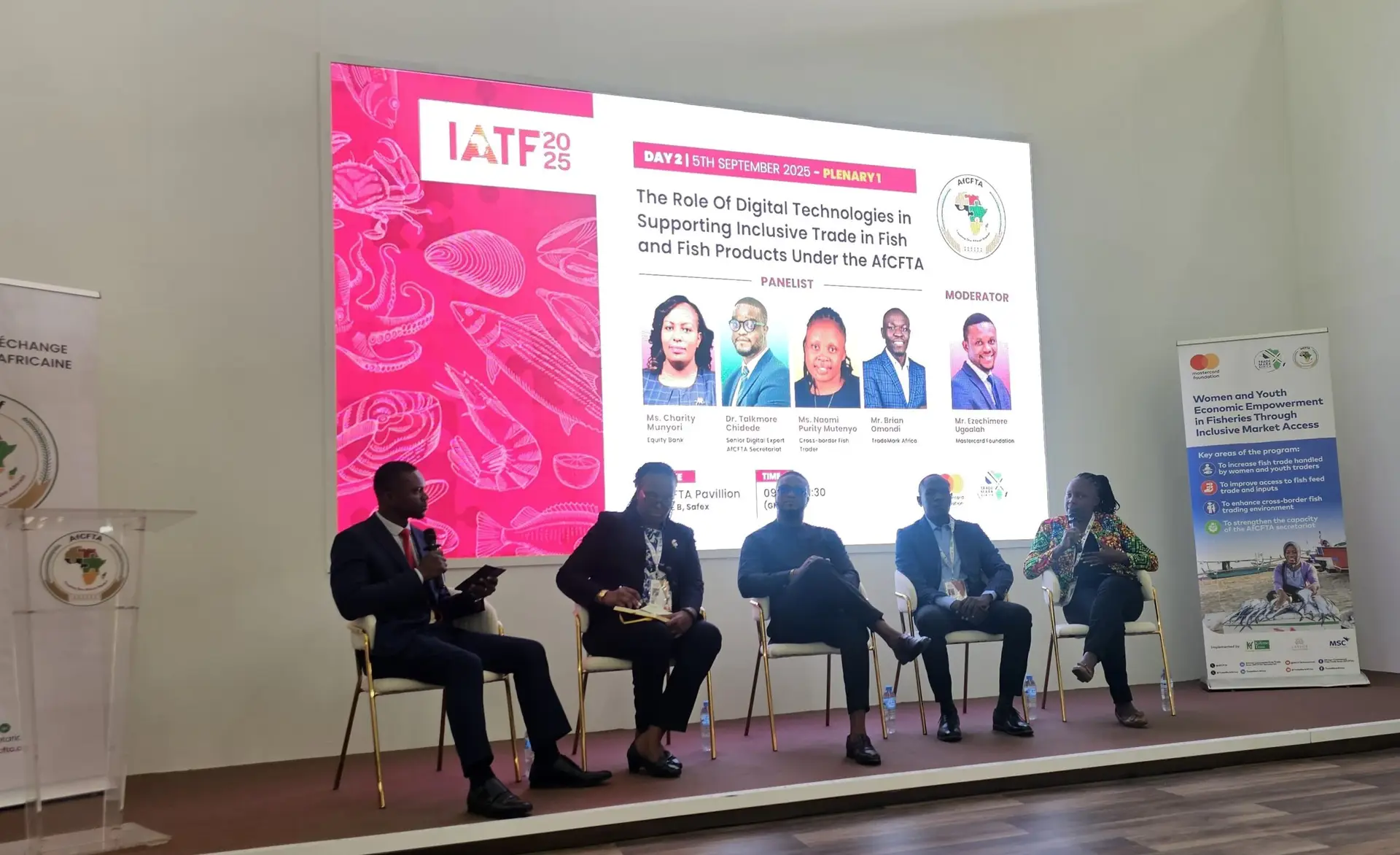Africa’s fisheries stakeholders used a high-level dialogue at the Intra-African Trade Fair (IATF 2025) on 5 September 2025 to push for a shift from policy to practice on digital trade, arguing that better tools could unlock markets for women and youth and make the sector more resilient.
Convened by the African Continental Free Trade Area (AfCFTA) Secretariat under the Women and Youth Economic Empowerment in Fisheries Through Market Access Programme, a panel session, “The role of digital technologies in supporting inclusive trade in fish and fish products under the AfCFTA”, drew more than 50 policymakers, entrepreneurs, digital innovators, financiers, traders and development partners into the discussion room.
Remarking at the start of the deliberations, Antonio Gilberto, Chief Technical Adviser at the AfCFTA Secretariat, stressed that digital trade and technology were central to speeding AfCFTA implementation and delivering inclusive growth, noting that the priority was execution. That message was reinforced by Themba Khumalo, Head of the Private Sector Unit at the AfCFTA Secretariat, who pointed to the fisheries programme the institution is implementing with TradeMark Africa in partnership with the Mastercard Foundation. The programme is designed to create jobs, formalise informal cross-border trade and widen opportunities for women and young people in fisheries through practical, tech-enabled solutions.
Moderating the panel, Ezechimere Ogoalah, Head of Pan-African Programmes Implementation at the Mastercard Foundation, underlined the Foundation’s commitment to ensuring young people and women benefit from the fisheries value chain. “The AfCFTA is not just a market integration project; it is a tool for shared prosperity. Through this programme, we want to ensure that women and youth have as much opportunity as possible in this important sector,” he said.
The expert panel constituting Charity Munyori (Equity Bank), Dr. Tokmore (AfCFTA Secretariat), Brian Omondi (TradeMark Africa), Elizabeth Gathu (MicroSave Consulting) and fish trader Naomi Purity Mutano, examined the day-to-day hurdles facing traders and the fixes already being deployed. Mutano set out the lived reality at borders: limited access to finance, tedious certification, corruption, insecurity and gender-based exploitation. “Too often, women at the border face harassment or are asked for bribes just to move their goods. We need systems that protect us and make trade fair,” she said.
Solutions on the table were concrete. Equity Bank’s Charity Munyori talked about cross-border accounts that let traders transact securely in multiple currencies and new guarantee schemes cutting the cost of credit. “Our goal is to make access to finance less intimidating and more inclusive,” said Munyori, noting that the products are enabling small firms scale beyond local markets.
Insurance is also moving closer to traders. Elizabeth Gathu described bundled microinsurance, delivered via digital wallets, that is extending affordable cover for risks such as cargo loss or illness. “We are putting protection at the fingertips of women traders,” she said.
Policy tools are tightening the system. The AfCFTA Secretariat highlighted continent-wide innovations such as online non-tariff barriers reporting mechanisms, e-certificates of origin and the Pan-African Payment and Settlement System (PAPSS). “These systems are not only about efficiency, but they are also about trust. When traders rely on harmonised processes, they trade more. And when financiers see transparency, they invest more,” Dr. Tokmore observed.
Speakers closed with a call for coordinated action by governments, the private sector and development partners to scale what works so that women and youth lead the growth of resilient, competitive and inclusive fisheries value chains.


